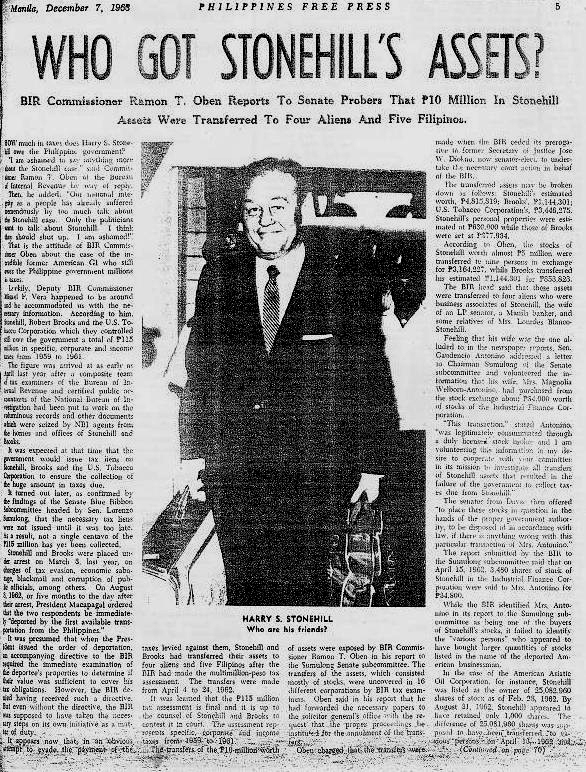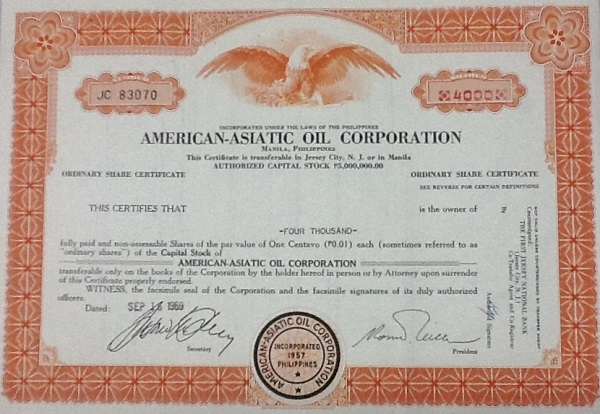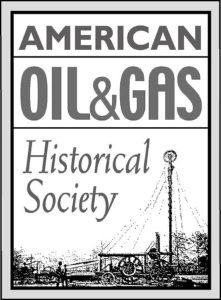According to the man who first envisioned the amazing Spider-Man, the life of Harry S. Stonehill “would make a great movie by someone like Oliver Stone.”

World Way II veteran Harry Stonehill founded American-Asiatic Oil in 1957 – and offered 100 million shares to the public.
Stan Lee, creator of the famed comic book web-slinger in 1962, was an old Army buddy of Lt. Stonehill. They had served together in the Philippines during World War II.
Although Stonehill returned to the country after the war and became rich from business ventures, he eventually was forced to flee the Philippines – and several other countries.
In 2011, Lee told Forbes magazine:
After the war, he said to me, “Hey Stan Come to the Philippines with me.” I said, “Why?” And he said, “I found out that they don’t have Christmas cards there. I’m going to buy a batch of Christmas cards and start a business.” I said, “I love ya, Harry, but you’re a lunatic.” And I went back to my comics and he went off to the Philippines.
By 1957, Stonehill was a multimillionaire when he organized American-Asiatic Oil Corporation. He had built a $50 million fortune in more than a dozen enterprises, including cotton, textiles and real-estate development. He also owned U.S. Tobacco, which held a virtual cigarette monopoly in the country; it would lead to his troubles.
When Stonehill formed American-Asiatic Oil in May, the Securities and Exchange Commission reported the company “will not have any income until it discovers petroleum in commercial quantities.”
The company’s 24 shareholders, including Stonehill, offered 100 million shares to the public. The commission noted that “proceeds of the stock sales will go to these shareholders, not to the company.”
Stonehill owned or held options for 26 million shares. Between 1959 and 1962, American-Asiatic Oil drilled two dozen wells on the Philippine Government Petroleum Exploration Concession Number 213.
Rarely spending more than a few days at each site, American-Asiatic Oil drilling crews moved its spudding rig from lease to lease. Total well depths averaged less than 500 feet and found no commercial quantities of oil.
“Stonehill, calling himself more lucky than talented, succeeded last spring where others had failed for 60 years when his American-Asiatic Oil Corp. struck oil in the Philippines,” noted a November 24, 1961, article in the Herald, an Anderson, Indiana, newspaper.

Responding to a reader’s query, in 1988 the Chicago Tribune newspaper reported: “Unfortunately, American-Asiatic Oil Corp. offers no hidden riches for you…shares are worth only “a tiny fraction of a cent.”
“He was only exploring, trying to determine the structure of the earth when he hit oil at a mere 240 feet,” added the article. Stonehill reportedly said, “We were scratching the surface. We weren’t even using oil drilling equipment. We did it with a water rig.”
But his well failed to produce commercial quantities of oil. The rest of the Philippine millionaire’s luck soon ran out.
Sinister Harry Stonehill?
Stonehill’s empire began falling apart when a U.S. Tobacco executive vice president became an informant for the FBI. The former executive reported he had confronted Stonehill and a partner “about massive illegalities in U.S. Tobacco.”
The FBI found it more likely that the informant had tried to extort the partners “by threatening to go to the authorities if they did not give him an ownership share in the company.”
“Either way,” according to the FBI report, Stonehill and the partner “responded by beating (Menhart) Spielman unconscious, resulting in his hospitalization.”
Stories began to circulate about CIA involvement and dossiers Stonehill kept on government officials he had bribed. It was said that he was spirited off the island in a submarine.
TIME likened Stonehill to the sinister Sidney Greenstreet movie character in the “Maltese Falcon.” The magazine reported:
“’Every man has his price,’ said Harry Stonehill, and in the Philippines after World War II he found that the going rate was fairly cheap; at one time he boasted: ‘I am the government.'”
In 1962, reform candidate Diosdado Macapagal came to power with a mandate to clean up corruption within the Philippine government. His agents promptly seized more than 300,000 of Stonehill’s documents, including a notorious “blue book” dossier that implicated dozens of government officials.
Philippine President Macapagal deported Stonehill, beginning litigation that would continue for decades. Stonehill claimed the incriminating evidence came from an illegal search and seizure. Court decisions and appeals followed. The newly deported Stonehill looked for a home.
In America, the IRS came after him with wiretap evidence seeking $13 million in back taxes, interest and penalties for the years 1958 to 1961. In 1963, Mexico deported him and the next year, Canada did as well. Stonehill eventually found a home in Spain, where he continued to fight in court. His fight would continue for more than 25 years.
Meanwhile, American-Asiatic Oil stockholders’ plight was reflected in a 1988 query to the Chicago Tribune newspaper:
I am a senior citizen and quite frankly don’t have the best memory lately. I recently went through all the junk and papers I`d been saving for years and came across a certificate for 5,000 shares of American-Asiatic Oil Corp., which I bought many years ago. Does it still have any value?
The Chicago Tribune responded:
Unfortunately, American-Asiatic Oil Corp. offers no hidden riches for you. Headquartered in the Philippines, American-Asiatic still is in existence. However, the last market for its stock was for a tiny fraction of a cent in 1984 and there is presently no market for it, according to Robert D. Fisher, vice president with the New York-based R.M. Smythe & Co. stock-search firm.
Army veteran Lt. Harry S. Stonehill died in Malaga, Spain, in 2002. Nine years after his death and almost 50 years after the disputed Philippines documents were seized, the U.S. Ninth District Court dismissed his estate’s most recent appeal.
“What is the one project that you’ve always wanted to do, but have yet to be able to?” a reporter once asked Marvel Comics’ Stan Lee, who responded, “the Life of Harry Stonehill.”
Today, the Philippines is a net energy importer in spite of low consumption levels relative to its Southeast Asian neighbors, according to the U.S. Energy Information Administration. The country produces small volumes of oil, natural gas, and coal.
___________________________________________________________________________________
The stories of exploration and production companies joining petroleum booms (and avoiding busts) can be found updated in Is my Old Oil Stock worth Anything? The American Oil & Gas Historical Society preserves U.S. petroleum history. Please support this AOGHS.ORG energy education website. For membership information, contact bawells@aoghs.org. © 2018 Bruce A. Wells.
___________________________________________________________________________________

